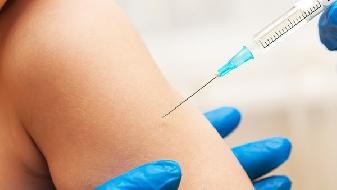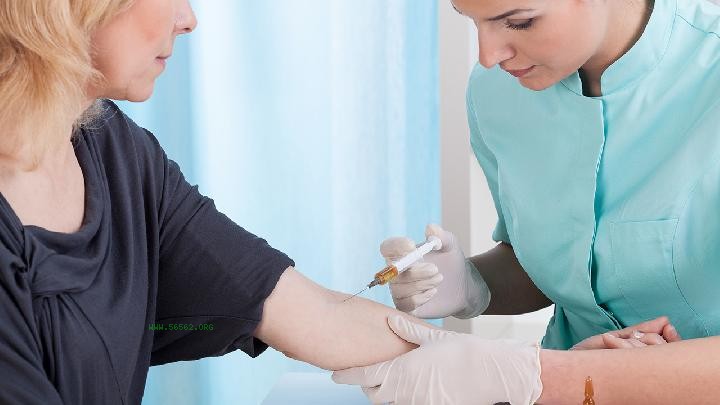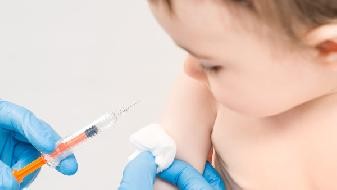Since the outbreak of COVID-19, sporadic cases have broken out all over China, and the vaccine has been in the stage of research and development. Today, Zeng Yixin, Deputy Director of the National Health Commission and Head of the Special Vaccine Research and Development Team of the Joint Defense and Joint Control Mechanism of the State Council, introduced that COVID-19 Vaccine is provided free of charge to the whole people. What's the matter? Is getting vaccinated free of charge? In addition, there are answers to the questions about the COVID-19 vaccine!

I. Health Commission: COVID-19 vaccine is free for all! What exactly is going on?
On December 31, Zeng Yixin, deputy director of the National Health Commission and head of the vaccine research and development team of the joint prevention and control mechanism of the State Council, introduced that the basic attribute of COVID-19 vaccine is public goods, and the price will change according to the size of use, but a major premise must be to provide free vaccine for all.
That is to say, COVID-19 vaccine is free.
II. Here are the answers to the 13 COVID-19 vaccine questions!
1 What are the current COVID-19 vaccines? Which one is the best?
Answer: At present, there are hundreds of units engaged in the research and development of COVID-19 vaccine, mainly focusing on several technical routes, including inactivated vaccine, gene recombinant vaccine, vector vaccine (including adenovirus vector, attenuated influenza virus vector), nucleic acid vaccine (mRNA vaccine, DNA vaccine).
It is not enough to simply say which technological route is better. To evaluate a vaccine, it is necessary to comprehensively consider its safety, effectiveness, accessibility, and affordability. This is the scientific evaluation of a vaccine.
At present, the vaccine for emergency vaccination in China is COVID-19 inactivated vaccine, and there is no other choice, and there is no evidence to prove which process vaccine is better. Considering the existing epidemic prevention needs, any vaccine made for the purpose of disease prevention is acceptable for non contraindicated populations. Can children, elderly people, and pregnant women be vaccinated? Is it necessary for the general population to receive vaccinations?
Answer: There is currently no published clinical research data for children, the elderly, and pregnant women, and they are not included in the vaccination population.
The emergency vaccination targets of COVID-19 inactivated vaccine used in China are key people aged 18-59 years old (2 doses for the whole process, 28 days for the recommended immunization program, and 14 days for the emergency vaccination program). Informed and voluntary vaccination should be carried out for non key people according to the national phased vaccination work department and the local immunization program or epidemic prevention needs.
For people with special health conditions such as children, the elderly and pregnant women, there is no published clinical research data to support the safety, immunogenicity and effectiveness of the above population after vaccination. Therefore, COVID-19 vaccination should be postponed for such people. If there are special needs (according to monitoring data, elderly and pregnant women may have a higher risk of severe illness and death after being infected with the virus), they should voluntarily choose whether to receive vaccination and sign an informed consent form under the guidance of scientific research institutions. Medical institutions and vaccine production license holders should provide medical observation, insurance and other security measures in accordance with national requirements.
3 Cold/fever, can you take COVID-19 vaccine?
Answer: If the symptoms are obvious during the acute onset or fever period, vaccination should be postponed until after recovery.
4 Is it necessary to vaccinate people who have received COVID-19 or asymptomatic infection?
Answer: Although based on the published information, re infection has been found through gene sequencing in Hong Kong, Belgium, the Netherlands, the United States and other places, and it is impossible to draw a conclusion of lifelong immunization for a single infection, generally speaking, people who have been infected with infectious diseases or asymptomatic infections will produce corresponding antibodies, which should have a protective effect similar to that of vaccination. It is recommended that people who have recovered from COVID-19 or who have no symptoms should not be vaccinated with COVID-19 vaccine.
5 When can people under the age of 18 and over the age of 60 be vaccinated with COVID-19 vaccine?
Answer: It is not yet confirmed.
According to the requirements of the joint prevention and control mechanism of the State Council, the first step is to vaccinate some key people with COVID-19 vaccine. The second step is that more vaccines will be put into use as the vaccine is approved for marketing or the vaccine production is gradually increased. Through orderly vaccination, qualified people will be able to catch up, and gradually build a crowd immune barrier to block the spread of COVID-19 in China.
In the emergency use phase, the target population is determined to be 18-59 years old people with high risk of infection and key posts. In the future, according to the results of the vaccine clinical trial, it will gradually consider to vaccinate people under 18 and over 60 years old with COVID-19 vaccine.
6 Who can not be vaccinated with COVID-19 vaccine?
Answer: The following groups are not recommended for vaccination at the moment:
(1) People beyond the age group authorized for emergency use of vaccines, such as those under 18 years old or over 59 years old; During non emergency use, vaccine should be administered to the designated population according to the vaccine instructions;
(2) People who are allergic to any component of the vaccine, suffer from severe acute diseases, fever, or acute exacerbation of chronic diseases;
(3) Pregnant women;
(4) Individuals who have experienced severe abnormal reactions to viral vaccines in the past and have been identified as vaccine related.
7 Where can I get the COVID-19 vaccine?
Answer: At present, all provinces, cities, autonomous regions, and municipalities directly under the Central Government are carrying out vaccination work at different stages according to the requirements of the Notice on Paying Close Attention to Vaccination of novel coronavirus among Key Populations. Key populations can go to the prevention and health care department of a formal medical institution approved by the state to vaccinate COVID-19 inactivated vaccine according to the information notified by each unit.
For the population within the scope of vaccination, they can confirm the vaccination unit and make an appointment for vaccination on the official website of the local health authority or disease control institution, or consult the local health authority or disease control institution.
8 Can COVID-19 vaccine replace influenza vaccine?
Answer: It cannot be replaced.
COVID-19 vaccine and influenza vaccine prevent two kinds of viruses. What does the flu vaccine prevent; Influenza virus;; COVID-19 vaccine prevents novel coronavirus.
9 Does COVID-19 continue to mutate, which will affect the effect of COVID-19 vaccination?
Answer: Up to now, most of the mutations of COVID-19 are neutral, which means that the COVID-19 vaccine we are developing will still be effective for the antiviral test results. However, whether this is still the case in the future, we still need to continue to closely monitor the mutation of COVID-19.
10 Can the COVID-19 vaccine be inoculated together with other vaccines? Or how long is the interval?

Answer: Not recommended at the moment. Although based on past experience, inactivated vaccines can be administered simultaneously with other vaccines. However, as COVID-19 vaccine is a new vaccine, there is no safety and immunogenicity data for simultaneous vaccination with other vaccines, so it is not recommended to vaccinate with other vaccines at the same time. However, if there are suspected rabies exposed individuals who need to receive rabies vaccine, and those who need to receive tetanus vaccine for other injuries, priority should be given to vaccination. The interval between COVID-19 vaccine and other vaccines shall not be less than 2 weeks.
11 How long is the protection period of COVID-19 vaccine?
Answer: Based on the current tracking research results, it is inferred that the vaccine has a protection period of at least six months.
The existing data of the COVID-19 vaccine approved for marketing show that the protection rate is 79.34%, meeting the requirements of relevant standards of the World Health Organization and the State Food and Drug administration. Further research data is needed to support the protective effects and immune persistence of SEP for different clinical endpoints, age groups, and races.
Do I need to check for antibodies? How to check for antibodies, and if they are negative, do they need to be vaccinated?
Answer: Not recommended! Due to differences in detection methodology and sensitivity of related reagents, the results may not display accurate information. Combined with laboratory testing results from vaccine development institutions, it can be inferred that the neutralizing antibody conversion rate exceeds 90%.
Therefore, except for special needs groups, there is no need for specialized antibody testing, and it is not recommended to conduct re vaccination for individuals who test negative for antibodies on their own. What should be done if adverse reactions occur after vaccination?
Answer: The most common adverse reactions after COVID-19 vaccination are fever, redness, swelling and pain at the vaccination site. They usually relieve themselves within two to three days, and generally do not need special treatment. If the symptoms are severe or the severity cannot be judged on its own, timely medical treatment should be sought.
The COVID-19 vaccine has come, will the end of the epidemic be far behind?







Comments (0)
Leave a Comment
No comments yet
Be the first to share your thoughts!